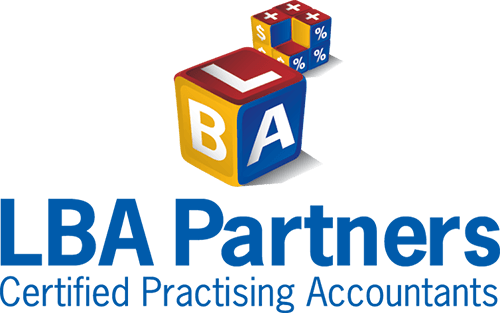P r a c t i c e U p d a t e
December 2010
ATO starts major credit and debit card Data Matching Program
The Tax Office (ATO) is undertaking a major compliance program which will involve electronically matching transactions of approximately 200,000 businesses with certain sections of ATO data holdings to identify non-compliance with registration, reporting, lodgment and payment obligations under taxation law.
To do so it has received data from banks that identifies credit and debit card sales made by Australian businesses.
This data is matched against taxpayer records to identify those participating in the cash economy and who are potentially skimming some or all of their cash takings or in other ways not reporting all of their income.
This project uses data relating to transactions conducted between 1 July 2009 to 30 June 2010.
How the ATO uses the data
The Tax Office says that bank data is used to improve compliance with tax obligations by allowing the ATO to:
- identify businesses that are operating underground and not participating in the tax system;
- identify businesses that are potentially skimming some or all of their cash takings or in other ways not reporting all their income;
- identify businesses that are reporting sales outside the benchmark ratio of cash sales to total sales for their industry segment; and
- establish benchmark ratios for cash sales to total sales for particular industry segments.
Where appropriate, the data obtained will be used to support default assessments of a business's tax liabilities.
For the period 1 July 2009 to 30 June 2010, the ATO will request and electronically match data relating to credit and debit card sales of entities within various industries from the following sources:
- Commonwealth Bank of Australia;
- Westpac Banking Corporation;
- ANZ Banking Group Limited;
- National Australia Bank Limited;
- Bendigo and Adelaide Bank Limited;
- Bank of Queensland Limited; and
- BWA Merchant Services Pty Ltd.
The ATO is urging businesses that have under-reported their income to contact them to make a voluntary disclosure of any under-reported amounts.
Tips to help keep track of super contributions
Below are some tips the ATO has provided to help taxpayers keep their super contributions below the contribution caps, so they do not pay extra tax.
Editor: This year, the cap on concessional (deductible) contributions is $25,000 p.a. (except for taxpayers aged 50 and over, for whom the cap is $50,000).
The cap for contributions made from after-tax dollars is $150,000 p.a, although taxpayers under 65 years of age may be eligible to 'bring forward' the next two years of contributions for a total of $450,000.
Contributions in excess of the caps are subject to excess contributions tax so clients must be careful not to inadvertently exceed any of the above.
- If a taxpayer thinks they may exceed the contributions cap in the current year, they should consider stopping or reducing any voluntary contributions (such as salary sacrifice), and/or delaying making any deductible personal contributions to the next year.
- Check when their contributions are received by their super fund (generally, the contribution counts towards a cap in the year in which the super fund actually receives the money).
- If the taxpayer has more than one job or pays money into more than one super fund, they should include all these when they work out their annual contributions (remembering that compulsory super guarantee amounts are concessional contributions).
- If a taxpayer exceeds the concessional contributions cap, the excess contributions count towards their non-concessional contributions cap.
- Any amount that is cashed out and re-contributed into the taxpayer's super fund is a personal contribution.
Editor: Any clients who are concerned with any of the above or who would like to discuss their superannuation requirements should contact us.
Co-owner of rental property can claim rental property expenses
The ATO has issued a formal guideline that where two taxpayers jointly own a property (on say a 50/50 basis), and one pays rent to the other to occupy the entire property, that 'lessor' is entitled to claim their share of rental property expenses against the rental income they receive from their co-owner who lives in the property.
Example
A taxpayer owns a property as tenant in common with another person, with a 50% legal interest.
The taxpayer's co-owner lives in the property, but the taxpayer does not live in the property.
The taxpayer's co-owner pays $70 per week to the taxpayer to live in the property (commercial rent in the area is $140 per week).
In such a case, the rent (reflecting an arm's-length agreement) would be assessable income in the hands of the recipient, so the taxpayer may deduct any losses or outgoings incurred in gaining or producing the rental income.
High-risk industries not paying super
To help employers understand and meet their super obligations, the ATO is running an education and compliance campaign targeting industries at high risk of not paying super to their workers.
One of the major mistakes made by employers is not understanding that in some circumstances they may have to pay super for contractors, even if the contractor quotes an ABN.
The high-risk industries identified include:
- accommodation (e.g., housekeepers, receptionists and hotel staff); and
- computer system design and related services (e.g., software and applications programmers and managers).
Tax return blitz continues for separated parents
The Child Support Agency (CSA) has recently signed a new agreement with the ATO, continuing a blitz on separated parents who fail to lodge tax returns.
Under the old agreement, the CSA collected $82 million over four years by intercepting the tax returns from separated parents with a child support debt.
During this period, the ATO also referred 4,438 separated parents for prosecution for failing to lodge tax returns, resulting in 2,193 convictions.
The enforcement process begins with a letter from the ATO to the person required to lodge a tax return outlining their responsibilities.
Failure to lodge may result in fines or referral for prosecution.
Please Note: Many of the comments in this publication are general in nature and anyone intending to apply the information to practical circumstances should seek professional advice to independently verify their interpretation and the information's applicability to their particular circumstances.
Management Consulting
We have the know-how and experience to offer advice that helps you run your business more effectively.
Self-Managed Superannuation Funds
At LBA Partners we provide the professional advice you need to manage your own fund and greatly simplify the process for you.



